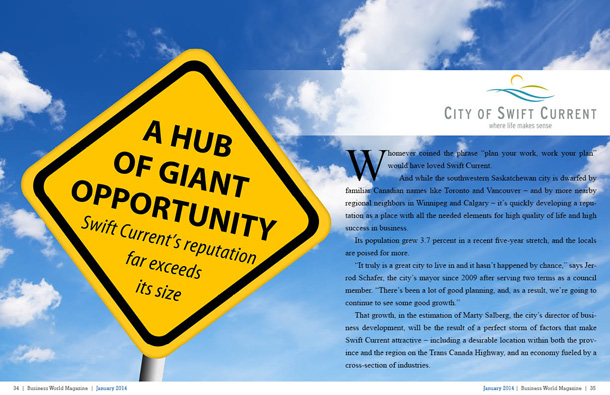

“Human progress is neither automatic nor inevitable,†observed Martin Luther King. The achieving of goals, he said, requires “the tireless exertions and passionate concern of dedicated individuals.†In Atlanta, the very city where King was born and raised, passionate persistence, dedication and concern for environmental quality has helped the city significantly progress toward the achieving of goals involving sustainability. In a city famed for having more than 50 streets that include the word “Peach†in their name, sustainability efforts are indeed helping to make life all the more peachy.
As the largest city in the State of Georgia, Atlanta is a hustling, bustling epicenter of activity all interspersed with a succinct savor of southern hospitality. Atlanta recently celebrated a record year for tourism, hosting some 40 million visitors in 2012 alone. Its airport, Hartsfield-Jackson Atlanta International, has a terminal complex comparable in size to more than 45 football fields and is distinguished as one the world’s busiest passenger airports. Atlanta is also home to more than 354 public parks and the Southeast first urban eco-district, nestled in Midtown Atlanta. Ranked number one as a top-metro area for lowest cost of doing business and “Best in Class†for its strong business infrastructure, affordability, and quality of life, Atlanta is an ever-growing urban metropolis. While this growth contributes to Atlanta’s economic vitality, it simultaneously places enormous demands on the generation of power as well as the integrity of its air quality. Fortunately, Atlanta’s proactive approach to adopting and advancing sustainability practices has prompted a new era of energy efficiency, environmental sensitivity and enhanced economic prosperity.
“We are on track for Atlanta to become  a top tier city for sustainability,†says Mayor Kasim Reed. Following the recent release of “Rising to the Challenge†(a comprehensive report highlighting Atlanta’s effort to reduce energy and water consumption in commercial buildings), Mayor Reed credited the partnership between businesses, universities, neighboring governments and non-profits as critical to Atlanta’s distinction as a leader among cities advancing sustainability practices. At the same time, there can be no dismissing the fact that the City administration has been leading by example and growth in sustainability policies and programs have been anchored by a conscious commitment to the City’s “Power to Change†sustainability initiative. The plan includes specific targets and metrics for both City departments and the Atlanta community. Stakeholder engagement, a robust web-portal, and a governance & accountability board are just a few highlights of the strategy to make Atlanta a top-tier city for sustainability; a goal set forth by Reed in his first year as Mayor.
Another essential ingredient to that strategy was the 2011 appointment of Denise Quarles who serves as Director of Sustainability for the City. The Office of Sustainability was initially developed in 2008 under the leadership of former Mayor Shirley Franklin where the City’s first director of sustainability did a tremendous job identifying opportunities to deploy sustainability best practices in government operations with very limited resources. At the time, Quarles says much of the emphasis was focused on achieving energy efficiency and improvements throughout government operations, initiatives supported through grants funded by the U.S. Department of Energy. While those activities accommodated much in the way of improvement in energy policy and the expansion of efficiency practices, the current administration has broadened its focus to include rigorous reduction measures for materials management, carbon-emissions reduction, and for improvements in water conservation and quality.
In its current iteration, the relatively young team of six brings a wealth of background and technical expertise to the table. Kelsey Baack worked as a National Network of Environmental Management Studies (NNEMS) fellow for the U.S. EPA and brings her analytic experience from the Boston City Council to Atlanta. Aaron Bastian’s background in government, the private sector and non-profit development gives him an edge when communicating across the initiative’s five stakeholder groups all while strengthening the office’s credibility with local and national institutions. Juan Garcia-Sanchez transitioned from practicing corporate and agricultural law in Illinois and Florida to overseeing the creation of policies and legislation needed to advance Atlanta’s sustainability goals in each impact area. Ruthie Norton, an Atlanta native and environmental engineer, provides strategic planning and analysis for the City’s utility portfolio in addition to benchmarking those accounts against national standards. Jules Toraya, an Army veteran, came to the office as a volunteer and has since ramped up Atlanta’s electric-vehicle readiness and zero-waste efforts, earning him a full-time position with the team and the distinction of subject matter expert for veterans in clean technology and sustainability. Prior to launching many of the current programs, Quarles says Atlanta completed a thorough assessment of the factors contributing to its carbon footprint; it was the first city in Georgia to actually qualify and quantify such measurements. That accomplishment was quickly followed by Atlanta being designated as one among only eight U.S. cities to participate in the Beta-phase of the ICLEI USA STAR Communities Index program, an initiative striving to create standardization models for municipalities working toward sustainability. Much has transpired in the two years since these benchmarking exercises took place, demonstrating not only Atlanta’s rising to the challenge, but the City’s stewardship of objectives that result in greater quality of life for residents as well as enhanced operational quality for businesses.
Reducing Energy, Waste, and Water Consumption
An important catalyst in this City’s path to excellence has been a program known as the Atlanta Better Buildings Challenge (ABBC). In response to Atlanta’s leadership and stewardship of grant objectives affiliated with the American Reinvestment and Recovery Act, President Obama’s administration along with the U.S. Department of Energy chose Atlanta as one of three pilot cities for the launch of the national Better Buildings Challenge. The goal of the challenge is to have commercial buildings 20 percent more energy efficient by 2020. That endeavor prompted numerous upgrades, particularly in more efficient lighting retrofits, but when they reached the point of completing upgrades at the Boisfeuillet Jones Atlanta Civic Center, Atlanta became the first city in the country to complete this flagship project. The City also recently celebrated the one-year anniversary of the ABBC; an expansion of the initiative that not only seeks to reduce energy and water consumption much as twenty percent in commercial buildings by the year 2020. Atlanta’s original goal was to have two million square feet of building space committed for this goal, but thus far, commitments have been achieved which equate to more than 50 million square feet, comprised by more than 74 properties and eight City facilities. Atlanta has since been ranked in the top five of American cities with the most Energy Star certified building. “This ranking underscores the commitment of property owners, elected officials, civic leaders, and our community to make Atlanta a top-tier sustainable city. The commercial buildings that make-up our skyline play a critical role in helping to reduce our carbon footprint, while delivering both economic and environmental benefits to our city,†says Mayor Kasim Reed. “We are proud to join other leading cities with this distinction.â€
Beyond the improvements made to City facilities, the Office of Sustainability is investing in the community as well. In the fall of 2011, the office introduced a residential energy efficiency rebate program call SHINE, the Sustainable Home Initiative in the New Economy. SHINE provided rebates for upgrading lighting, HVAC systems, adding insulation, and weather-stripping to over 300 Atlanta homeowners. Through a unique partnership with Georgia Interfaith Power and Light (GIPL), the City seed-funded a program that provides free energy audits to faith houses.
In addition to a six-fold increase in recycling rates within City offices and facilities, Quarles says her office worked closely with the Department of Public Works to expand the city-wide recycling program known as “Cartlanta.†This initiative allows every singly-family household in the city to contribute to landfill diversion by providing a free 96 gallon recycling carts at their home; 65,000 carts were delivered as a part of Cartlanta. “I am pleased with the increase in our recycling
rates and that City of Atlanta residents are responding enthusiastically to the Cartlanta program,†says Mayor Kasim Reed. “As we encourage our residents to recycle, we are leading by example and requiring City personnel to do the same. Collectively we’ve made vast improvements, and we hope the entire city -residents, businesses and city employees – will support our vision to make Atlanta a top-tier city for sustainability.â€
As part of a region-wide water efficiency campaign, “My Drop Countsâ€, the City has taken its commitment to water conservation a step further through various policies and programs. Atlanta became one of the country’s first cities to successfully pass legislation to allow residential rainwater harvesting for potable use. Homeowners as well as businesses are utilizing rain barrels throughout the city, from 50 gallon rain barrels as well as larger residential and commercial scale systems, reducing the demand for municipal water for gardening and landscaping. Water conservation workshops have also been conducted by City personnel where attendees are provided with a free water conservation kit that includes a low flow shower head, aerators, and various educational materials.
Atlanta is additionally participating in the Wyland Foundation’s National Mayor’s Challenge for Water Conservation. According to Mayor Reed, “Atlanta is committed to conserving our resources and to the mission of sustainability that is inherent in this pledge.“ The City has spent billions of dollars to overhaul an aging water and sewer infrastructure. “Atlanta is keenly aware of the critical nature of our systems and the responsibility to protect our water sources. We pledge to conserve water for both environmental and financial reasons. Conservation doesn’t just save water; it also saves money,†say Mayor Reed.
Yet whether it has related to water consumption, recycling, weatherization tips or strategies for decreasing energy consumption, Quarles says the initiative’s stakeholder organizations maintain a year-round schedule of workshops and community forums from neighborhood to neighborhood, church to church, and school to school.
Urban Green
Quarles adds that she has been especially encouraged to see schools adopting sustainability into their educational curriculum, and students both actively and enthusiastically engaged in a variety of projects. A number of schools have created gardens with students taking a hands-on role as they learn about planting and providing care to plants. Beyond the schools, community gardens have been also been increasingly established throughout the city. Thus far, more than 500 volunteers have worked to create and maintain community gardens with Park Pride, a local nonprofit organization. Many of these gardens, located in neighborhoods without a grocery store, donate a portion of their produce to neighbors in need through local food pantries.
Those efforts figure in two other important goals for the city: to expand green space so that all residents are within one-half mile walking distance to a park or greenspace; and another designed to ensure residents have ready access to locally grown food within ten miles of seventy-five percent of all residents.
Quarles says the City has partnered with organizations such as Georgia Organics to not only capitalize on Atlanta’s yearlong growing season, but help residents understand the benefits of community gardens. The benefits involve more than the harvesting of produce. Quarles explains how green spaces provide effective means to more capably manage storm water, but also help minimize the impact of elevated temperatures affiliated with an effect known as urban heat island, a factor which, no doubt, contributes to the city’s recognition as “Hotlanta.†Through its commitment to local growing initiatives, Atlanta has also passed legislation to protect Farmers Markets which operate in the city limits.
Advancing in Clean Technology
Only five short years ago, Atlanta’s air pollution was recognized among the worst in the nation, but its air quality has tremendously improved demonstrating how quickly trends can be reversed through concerted sustainability efforts. Quarles says the city has yet to realize all of its goals for air quality, but while that work continues, several initiatives are providing crucial support to their effort. In one case, a bike-share program (called “viaCycleâ€) has been launched through a partnership with the Georgia Institute of Technology. The City has also invested in more emission friendly Compressed Natural Gas (CNG) vehicles, such as those powering busses at the airport. This summer, Atlanta anticipates opening two CNG stations, but those facilities actually follow the opening of the city’s first state-of-the-art retail biodiesel fueling station, a project developed through a partnership with Atlanta’s Department of Public Works and non-profit organization Clean Energy Atlanta.
Atlanta is preparing an infrastructure to more capably respond to consumers’ increasing reliance on electric vehicles. Those efforts include upgrading the permitting process to more readily enable Atlanta residents and business owners to install EV charging stations with a same-day turnaround. The City has also produced an EV Readiness Manual to help property owners, residents, and other municipalities understand challenges and opportunities involving the growing popularity of electric vehicles. To support the electric vehicle infrastructure development, the City has partnered with the EV Project (run by ECOtality), which offers free Blink Chargers to EV drivers and commercial host sites in Atlanta. Because of the significant strides Atlanta has made in this area, the office was recently invited to the White House to participate in a forum focusing on how to build stakeholder collaboration and effectively develop infrastructure crucial to the needs arising from electronic vehicles.
Another major undertaking involves mass transportation, and in this case, Atlanta is preparing infrastructure that will not only improve air quality by lowering fuel emissions, but also reduce dependence on fuel for those who take advantage of a new street car system. The City only recently began laying track for this endeavor which, at present, is planned to run between the Martin Luther King Jr. National Historic Site and the Centennial Olympic Park. This project cost $93 million, which includes cost of the streetcar and needed corridor improvements, but half of the costs are covered by a federal stimulus grant. Other funding is provided by the Atlanta Downtown Improvement District which is a self-taxing business district. City officials are determined to create a more substantial streetcar system which, if all goes as planned, may expand throughout all of downtown and midtown Atlanta one day.
While that connectivity poses benefits for shoppers, students, workers and residents alike, City officials believe it will also prompt business development along traveled corridors, but more importantly, help reduce the emissions which would otherwise undermine Atlanta’s air quality. As Quarles says, “We all breathe the air, and improving air quality means improving the overall health of our residents. The indirect health impacts of clean commute choices are indisputable and often require no more than a conscious change in behavior.â€
Hometown Heroes
What has truly made Atlanta stand-out as a leader in sustainability, perhaps more than anything else, is the wide range of participation and support it has secured from residents, schools and the business community. Quarles says much of that participation has been more by default than design. When she initially came into office, Quarles says she recognized the value in sharing best practices, not only in government operations, but in industry; her last tenure. The Office’s Ambassador program has created a tracking tool that business can utilize for sharing those best practices, successes, and opportunities. The calls and e-mails for partnership opportunities and progress updates now flow into the office daily. “To become a top-tier sustainable city, we must take a cohesive and collaborative approach,†says Mayor Reed. “The Power to Change Ambassador Program will help amplify our individual successes and showcase our full-circle commitment to sustainabilityâ€.
Many companies have taken advantage of free audits offered through the Atlanta Better Buildings Challenge to better understand where retrofits are needed to make them more energy efficient. Industry stakeholder highlights include:
• Ted’s Montana Grill, a restaurant founded by environment pioneer Ted Turner, the company actually created a massive solar array which is helping decrease dependence on electricity from the utility company by as much as 20 percent. Ted’s also installed a special overlay material to its parking lot which cools surface by ten to twenty degrees over that of typical asphalt, further assisting in mitigating urban heat island factors.
• The Home Depot has installed rainwater harvesting systems for maintaining their gardening inventory in five Metro Atlanta area stores saving a collective 500,000 gallons of water annually.
• Coca-Cola furthered its commitment to local sustainability by donating 4,000 rain barrels to various organizations as well as individuals around Atlanta to capture and re-use rain water. Additionally, Coca-Cola’s North Avenue employee tower is a part of the Atlanta Better Buildings Challenge.
• Atlanta-based Novelis, a national leader in the production of aluminum products, is currently manufacturing goods utilizing some 39 percent of recycled material, but has committed to 80 percent recycled content by 2020. Novelis has begun investments totaling some $1.4 billion for operational expansions and increased recycling capacity needed to not only help meet expected demands in the aluminum market, but also fulfill their recycling targets.
• Perkins+Will, a global leader in architectural and design services, has also been ostentatious in supporting Atlanta’s sustainability goals. Renovations to the firm’s offices located at 1315 Peachtree have not only achieved energy reductions of 58 percent, but principals also installed an employee garden, energy efficient technology resources, and a multi-purpose, flexible workplace design. The renovations led to the firm earning LEED Platinum distinction with a score of 95, which now makes them the record holder and top performer in the system affiliated with the U.S. Green Building Council.
These are just a few examples, for as Quarles says, sustainability practices can be increasingly found throughout all residential and professional communities of Atlanta. Collectively, those efforts are helping reduce water and electricity consumption, reduce operational costs, improve air quality and all while creating jobs in the process. “We’re moving in the right direction,†says Quarles, adding that anytime communities can be united around common goals, and the more means are provided for people to get engaged and involved, the more likely it is for objectives to be achieved.â€
That does sometime come with somewhat of a learning curve observes Quarles. She says while individuals may not necessarily understand the complexities of science relating to climate change, urban heat island or ecosystems, they do readily relate to ideas that impart means to reduce energy costs or make the air more breathable, or less stifling with heat. Quarles says as understanding advances, so too will efforts to enhance existing programs even as new initiatives are adopted. “Energy conservation is a priority for Atlanta and our collective efforts can have a tremendous impact. We encourage residents and businesses to join us in this effort and our overall sustainability initiatives,†adds Mayor Kasim Reed. “The partnership between our businesses, universities, neighboring governments, and non-profits will keep Atlanta in the lead.
For more information, please visit their website at: Â City of Atlanta
Preferred Vendor of Choice:








